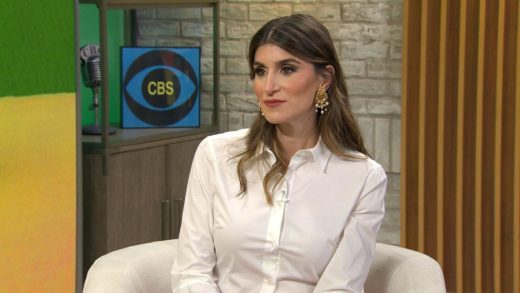There’s a storm brewing in Tallahassee, and it’s more than just the weather forecast.
Miami has been bulldozing opponents in the comfort of its own backyard, but now the Hurricanes pack their bags for their first real test — a trip to Florida State, where chaos lives under center and the stakes stretch beyond just bragging rights.
One team thrives on pressure, while the other thrives in it. Something’s got to give, and what happens Saturday could reshape the entire ACC title race.
All odds by ESPN BET

 No. 3 Miami Hurricanes at No. 18 Florida State Seminoles
No. 3 Miami Hurricanes at No. 18 Florida State Seminoles
Saturday, 7:30 p.m. ET, ABC
Line: Miami -4.5
Money line: Miami (-190), Florida State (+160)
Over/Under: 53.5 (O -115, U -105)
Betting trends
Courtesy of ESPN Research
-
Miami is 7-9 ATS on the road under Mario Cristobal (since 2022). The over has hit in 10 of those 16 games.
-
Miami is 1-3 ATS on the road against ranked opponents under Cristobal, though its lone cover in that span came against No. 4 Florida State in 2023 (lost game 27-20 as a 15.5-point underdog).
-
Miami’s games have gone over the total in 12 of 17 games since last season (2-2 this season). The over has hit in five of their six road games in that span.
-
Carson Beck’s teams are 10-4 ATS against ranked opponents (2-0 at Miami, 8-4 at Georgia).
-
This is the first time since 2016 that a ranked Florida State team has been a home underdog (lost by 3 vs. Clemson as 4-point home underdogs). The last time Florida State was an underdog of 4.5 or more points as a ranked team at home was in 2008 against Tim Tebow’s No. 2 Florida (lost 45-15 as a 16.5-point underdog).
-
Overs have hit in eight of Florida State’s 12 home games as a ranked team under Mike Norvell (since 2020).
-
Florida State’s games have gone over the total in seven of nine games against top-10 opponents under Norvell.
Miami’s formula: pressure + power + control = a 4-0 start
Miami’s formula this season has been pretty simple: win at the line of scrimmage, dictate tempo and let that physical edge bleed into every other part of the game.
Through four weeks, the Hurricanes have been one of the most disruptive defenses in the country; they rank second in pass-rush grade with 86 pressures, have 13 sacks and a front that consistently wins on early downs (seventh best).
That pressure has done more than just create negative plays; it has allowed Miami to control game flow. Opponents are behind the sticks, forced into predictable passing situations and rarely able to sustain long drives. Just ask Notre Dame, which had four punts and a fumble on five first-half possessions against this defense.
The run defense has been just as dominant, ranking 11th in success rate. That combination has made Miami’s front seven the engine of everything the team does. When you’re stuffing runs on first down and collapsing pockets on third, you’re stealing possessions, shortening fields and making life easier for your quarterback. Beck doesn’t need to be Superman in that scenario. He can stay on schedule, pick apart softer coverages and let the defense set the tone.
If the pass rush maintains its lane discipline and still gets home, forcing Florida State into third-and-long, Miami’s trench advantage should travel. Control the line, control the clock and, more often than not, control the scoreboard.
If Miami wins and covers, it’ll be because its front dictated the game from the first snap.
Why the Virginia loss doesn’t tell the whole story for Florida State
Florida State’s overtime loss to Virginia is why people will be dismissing their chances against Miami, but context matters. Virginia is a better football team than its name recognition suggests, with a top-25 offensive efficiency profile, a veteran quarterback who extends plays and a defense that thrives on limiting explosives.
That matchup exposed Florida State’s weaknesses against a methodical offense that stays on schedule. Miami is not that team. The Hurricanes win with defensive disruption.
But what happens when a defense built on disruption meets a quarterback who thrives in chaos?
That style is tailor-made for FSU QB Tommy Castellanos. He is most dangerous when the structure of a play breaks down, and his mobility could be the single most impactful data point in this matchup. He ran for 78 yards against Alabama and another 78 against Virginia, converting third downs and keeping drives alive with his legs. And while Florida State struggled with Virginia’s balance, this matchup invites what they do best: extending plays, finding space and turning chaos into chunk gains.
It is also worth noting that this is not Florida State stepping into a buzzsaw on the road. FSU is at home, where it beat Alabama 31-17 and where its defense plays with more confidence. The Virginia result should not be seen as a warning sign, but rather as a data point from a very different matchup. Against a Miami team that thrives on pressure, Florida State’s style has the potential to flip the game script.
Bet: Florida State +4.5
Backing FSU starts and ends with Castellanos. His mobility is the entire ceiling of this offense — the piece that elevates them from competitive to dangerous. He has been sacked just twice all season.
That’s not a throwaway stat.
It’s a direct reflection of how he manipulates pressure, escapes collapsing pockets and keeps drives alive when most quarterbacks would be on the turf.
And that’s precisely where Miami’s defense could be most vulnerable. The defense hasn’t faced a quarterback with this type of mobility all year. The last time it did, against Georgia Tech’s Haynes King last season, Miami lost 28-23 on the road and gave up 93 rushing yards to the quarterback.
Castellanos is more dynamic and arguably more efficient than King, and that combination is the single most dangerous sign for Miami heading into Saturday. A strength for the Canes could be neutralized because pressure doesn’t bother Castellanos. In fact, it often works in his favor. What stands out in the raw numbers is that even under duress, Castellanos’ efficiency doesn’t collapse. Plug in his mobility, that’s a nightmare scenario for a defense that thrives on disrupting rhythm.
All of this connects directly to the other side of the matchup. Miami’s formula has been built on control: clean pockets for Beck, favorable field position and a defense dictating pace. But all of that has happened at home.
On the road, volatility creeps in. Communication shifts, protections break down and quarterbacks like Beck become less efficient. His 2024 splits prove it, and Florida State has already shown it can force that regression by flustering Alabama’s Ty Simpson in Week 1.
When disruption meets chaos, chaos usually wins.
Castellanos is built to turn that chaos into points. He is not just a mobile quarterback; he is immune to the way Miami wins football games. Unless Miami’s secondary plays well above its current level (57th in coverage grade), there is a real scenario in which the Hurricanes never flip the game with pressure at all.
When pressure does not bother your quarterback and it rattles the other team’s, you are live. Florida State is both capable of covering the spread and built to win this outright (+160). I would bet this down to +3.5 and still feel good about it.
In a previous article, I talked about being selective with underdog money lines. This is one of those examples. It is a selective sprinkle, the kind of situation where volatility and matchup align enough to justify taking a shot. Castellanos’ mobility directly neutralizes Miami’s greatest strength, and Florida State is at home, which raises its true win probability above the implied number. This is exactly the type of matchup where “live dog” actually means something.


